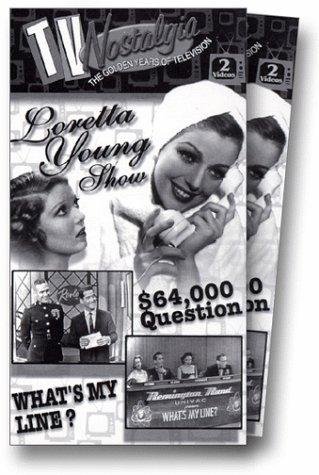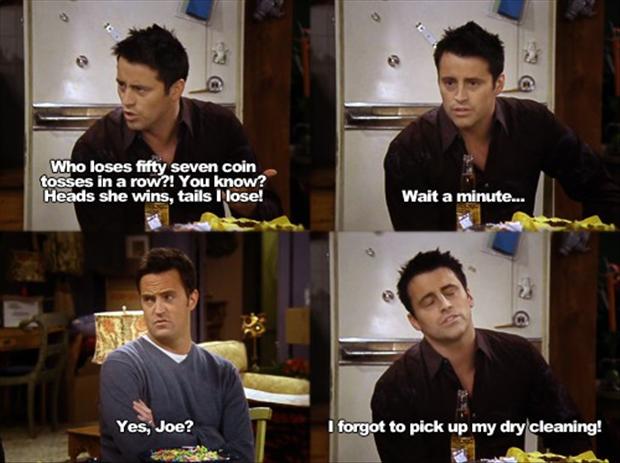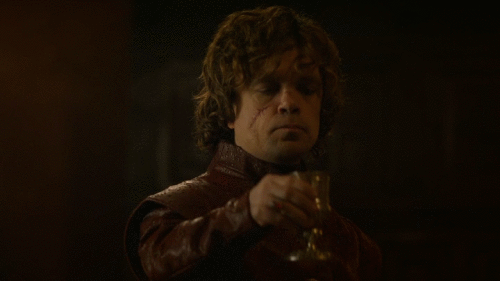A TV Producer somewhere is grabbing his crystal ball to see which TV production will be popular and which will flop - at least that the image comes to my mind. Unfortunately the Nielsen Ratings and technology still hasn't caught up to the crystle ball, so sometimes they have to rely on more primitive methods to make predictions.
Chinese philosopher Confucius once said "study the past if you would divine the future." Fortune 500 CEO leadership coach Mike Myatt would agree with Confucius, as in his book Hacking Leadership he also proposes that the best way to predict the future is to study the past. The future doesn't exist in a vacuum, it is the direct result of what happened in the past and what's happening right now. So all you TV Producers and broadcast industry professionals, before you call your psychic analyst - don't worry, they'll know you're about to cancel the appointment - perhaps the best way to look into the future is to analyze the past.
TV in the 50s
It wasn't until after World War II that television really took off. In 1947 television was more or less an extension of what was already on the radio, with many notable TV shows of that era being straight adaptations from the radio. In addition to the increase in post-war consumption, there was also a lot of great talent coming off the battle field that could enter into the television business. By the 1950's television popularity had boomed. Some call it the Golden Age of Television. Sitcoms became the popular form of comedy for the modern consumer, and many sitcoms were moving away from the traditional live audience into a pre-filmed model. Just as the CGI of today gives a TV producer an amazing amount of creative freedom, the switch from live audience to taped shows allowed directors and actors to do things on the show they previous couldn't do. That isn't to say that live television wasn't popular, it just found it's popularity in other genres. More and more people began watching news television broadcasts rather than listening to the radio as many famous radio announcers made the switch to the screen. Quiz shows were also quite popular among viewers until game show scandals struck about games being rigged in favor of contestants, because TV producers thought it would make the shows more likable. This effort by producers to keep a television show popular actually hastened its demise, creating consumer distrust in an entire genre of reality television.

TV in the 60s
Game shows did make a resurgence in the 1960's under careful control of those in the board room. The 60's saw many new forms of programming gaining popularity such as talk shows, children's TV programming, soap operas, and documentaries. The presidential debate between John F. Kennedy and Richard Nixon was aired on television and changed the way people viewed their candidates for public office, a phenomena those in the US are probably well familiar with at this current moment. Television's popularity was also assisted by the turbulent events that were happening during the decade. That very president who's victory some attribute to his performance in that television debate had his assassination viewed worldwide on the same platform.
While the world experienced the Vietnam War, Civil Rights Movement, traveling to the moon, and gathering at Woodstock, people watched NBC's Star Trek, a show that has been hugely successfully not just in the time it was initially created but to this day. Star Trek played off the consumer's growing interest in exploring space and while it was originally rejected for being "too cerebral," once producer Gene Roddenberry added a suitable amount of action and adventure it began airing to the public. Just a few changes to the concept took a rejected show and turned it into one of TV history's most popular franchises.
A Quick Review of the Rest
In the 1970's Producers decided to make a change by canceling shows they deemed "unsophisticated" in favor of shows with a more urban flair. By this time most people were getting their news from television and there was a lot of news to be reported on. This continued on into the 1980's. What didn't continue was the popularity of sitcoms, as people became more interested in watching the lives of the rich and fabulous, forgetting their own lives. As Keeping Up with the Kardashians continues onto its 11th season we can see that that trend has yet to die. When people did watch sitcoms they usually centered on family comedy. This trend, however, did not last forever because by the 90's, although there were some notable family comedies in the early 90's like Full House, people became more interested in watching shows about the young and single.
TV shows like Friends became all the rage, even though some of the lines it crossed would have ended careers a decade previous. A CNN article from 2003 discussed why Friends had become so popular and how to recreate its success. The article proposes that there are two types of popular shows; shows are either star-driven or concept-driven. When Friends first aired and the concept of a show about a group of young unmarried individuals trying to make their way around the big city was relatively new and appealing to the viewers. At that point, although Friends didn't have a lot of star power it became popular because it was concept driven. By the end of its run the concept was no longer novel but viewers had become so attached to the characters and actors that it remained popular because it was star-driven.

Moving to the present
A look at IMBD's list of most popular shows released in 2015 one can see a large variety in concepts. Some of the new shows like Daredevil or Supergirl center around crime fighting superheros while many others deal with issues surrounding the apocalypse such as Fear the Walking Dead or the aptly named You, Me, and the Apocalypse. As interested as viewers in the 1960's were with the exploration of space, viewers of today seem to be fascinated less with the discovery of new worlds but what to do when the one we inhabit ends.
Clearly television programming has changed a lot in the last 70 years. The attitudes of the world around us influence what we as consumers want to watch. There are certain trends that can be noticed throughout the history of TV production. People live vicariously through the characters they see on screen, whether they want to get rich quick on game shows like The $64,000 Question, or travel through space as the infallible Captain Kirk, or even if they want to vie for the throne of Westeros like their favorite characters on Game of Thrones. While some shows are about the life you wish you could live like Keeping Up with the Kardashians or the life you're glad you don't but enjoy getting the experience of without the nasty parts like Orange is the New Black. The TV Producer offers us a chance to broaden our horizons indefinitely. So perhaps instead of consulting a psychic for which idea will be most successful, ask them them what they want experience through television.









